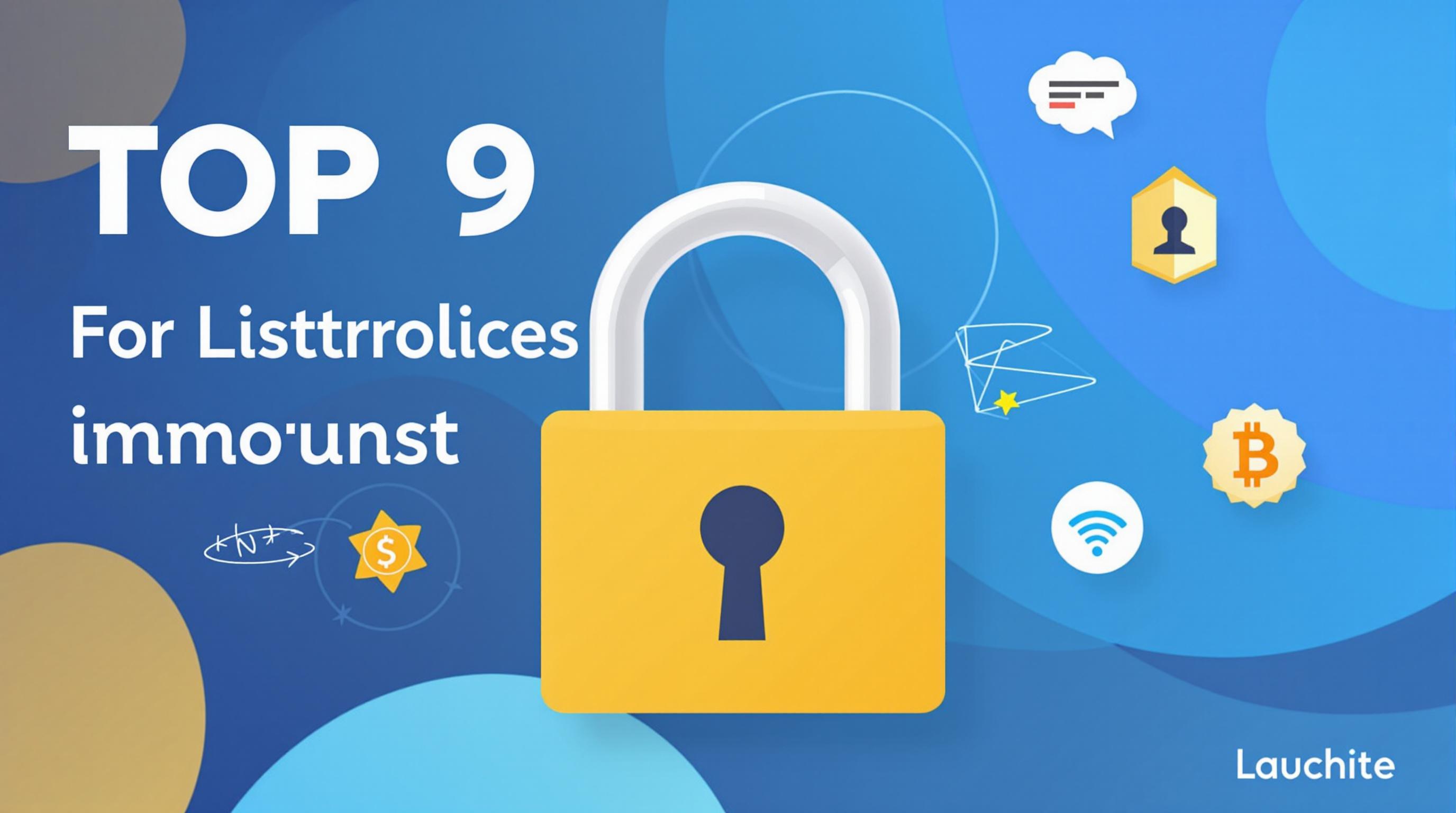Related Articles
- Unveiling the Silent Effects of Malware Residue on IoT Devices and What It Means for Your Connected Home Security
- Top 6 Game-Changing Email Security Suites Released Since 2019 That Actually Stop Cyber Trickery
- The Hidden Impact of AI-Driven Voice Assistants on Your Device’s Safety: Risks Nobody Talks About
- Top 6 Stealth Encryption Products Redefining Data Privacy You Haven’t Heard About Since 2019
- Exploring the Influence of Wi-Fi Radiation on Human Sleep Patterns and Cognitive Health in Modern Living
- Top 8 Stealth Malware Cleaners from the Past 5 Years That Outsmart Evasive Threats
The Hidden Impact of AI-Driven Voice Assistants on Your Device’s Safety: Risks Nobody Talks About
The Hidden Impact of AI-Driven Voice Assistants on Your Device’s Safety: Risks Nobody Talks About
AI-driven voice assistants have quietly reshaped how we interact with technology, but beneath their friendly voices lie hidden risks to device security that many overlook. This article explores those dangers—from eavesdropping vulnerabilities to data privacy concerns—using varied tones and storytelling to unravel the complexities you need to know.
The Invisible Listener: More Than Just Convenience
Imagine you're cooking dinner, humming along to your favorite song, when suddenly your voice assistant mishears a phrase and orders an expensive gadget you never intended to buy. While this scenario might elicit laughter, it's not just a prank waiting to happen. Voice assistants operate by continuously listening for a wake word, which means they're always partially “on,” creating an opportunity for unexpected data capture.
In a study conducted by University of Oxford researchers in 2022, 40% of voice assistant devices were found to activate without the wake word, inadvertently recording ambient conversations (Smith et al., 2022). This “false activation” phenomenon exposes sensitive information that could be exploited by malicious actors.
The Quiet Risk of Eavesdropping
On a casual Sunday afternoon, I once overheard my friend sharing personal financial details aloud, unaware that her voice assistant was storing snippets of the conversation. This anecdote highlights a troubling truth: voice assistants can unintentionally become digital eavesdroppers, transmitting private information to cloud servers for analysis.
Experts warn that such data may not only be vulnerable to hacking but could also be used for targeted advertising or surveillance by third parties. According to a 2023 report by Consumer Reports, nearly 63% of voice assistant owners expressed concern over privacy violations, yet only 15% took steps to secure their devices effectively.
Data Storage and Third-Party Access
When you ask your voice assistant a question, your request doesn't just vanish after the reply. Instead, it is often stored and analyzed by companies to improve their AI algorithms. However, these stored voice clips can be accessed by employees and, worse, by hackers if security measures are breached.
Amazon’s Alexa was once embroiled in controversy when it was revealed that human contractors were listening to users' recorded conversations to fine-tune the AI (The Verge, 2019). This raised ethical questions about consent and the extent to which users are aware that their voices are being scrutinized.
Hidden Backdoors: When Hackers Gain Vocal Command
It sounds like something out of a sci-fi thriller: hackers remotely controlling your smart home through your voice assistant. Yet, this is a growing reality facilitated by vulnerabilities in voice recognition systems and weak authentication protocols.
A notorious example occurred in 2021 when a hacker exploited a flaw in Google Assistant to unlock smart locks without needing a password, as reported by cybersecurity firm McAfee (McAfee Labs, 2021). This incident underscores the tangible threats posed when malicious agents hijack voice commands.
Persuasive Yet Deceptive Tricks
Have you heard about “voice squatting”? It's the crafty technique where attackers create malicious applications with names sounding deceptively like legitimate skills or commands of voice assistants. Unsuspecting users might invoke these fraudulent apps, inadvertently granting perpetrators access to personal data or financial details.
Voice squatting attacks increased by 35% between 2020 and 2023, per a recent security analysis by Symantec (Symantec Threat Report, 2023). These deceptive strategies use the trust people place in their assistants against them, making vigilance essential.
Understanding the Role of AI in Voice Recognition Failures
AI is undeniably impressive but not infallible. The natural language processing algorithms powering voice assistants sometimes misinterpret commands, leading to unintended actions. This unpredictability can be exploited to bypass certain restrictions or trick devices into executing commands without explicit user intent.
For instance, researchers at Stanford University demonstrated how “adversarial audio” — specially crafted sound waves unintelligible to humans but recognizable to AI — could issue commands stealthily to voice assistants (Stanford AI Lab, 2022). Such vulnerabilities highlight the pressing need for robust AI safety measures.
Why Should Teens and Seniors Care?
Whether you're a teenager texting with friends or a senior managing smart home tech, the security of voice assistants matters to you. Teen users often engage with voice devices casually, not fully grasping data privacy implications, while seniors might rely heavily on these assistants for daily tasks, inadvertently increasing their exposure.
Understanding the hidden risks can empower all age groups to take simple precautions like disabling unnecessary permissions, muting microphones when not in use, or regularly auditing voice history logs.
Humorous Interlude: When Alexa Becomes Too Helpful
Picture this: a dad trying to have a serious talk with his family about budget cuts, when Alexa suddenly chimes in with, “I found a vacation deal to Bora Bora. Shall I book it?” Sometimes our beloved AI companions have a knack for comedic timing—though their antics mask complex privacy pitfalls!
Protective Measures: Staying Ahead in the AI Voice Game
So, what can you do? Educate yourself about your device’s settings: disable features like voice purchasing if you don't use them, set strong passwords, and look for devices with on-board AI processing to minimize cloud data dependence.
Also, consider opting out of data sharing programs where possible. For instance, Apple allows users to prevent Siri recordings from being used in model improvement (Apple, 2023). Taking control over these options enhances your security posture against invisible threats.
Case Study: The British Homeowner and the Accidental Purchase
Mrs. Jane Thompson of Manchester recounted how her voice assistant once bought £500 worth of gardening supplies without her approval. It turned out that her television’s onscreen commercials triggered a misheard voice command, demonstrating how interconnected devices can compound security issues (BBC News, 2022).
This case serves as a reminder that the environment around your voice assistant matters just as much as the device itself when it comes to safety.
The Legal and Ethical Jungle
The rapid adoption of AI voice assistants has outpaced regulatory frameworks. Laws governing consent, data retention, and user rights often lag behind technological development, leaving users vulnerable.
Notably, the European Union’s GDPR includes provisions about consent for data collection, which apply to voice assistants, but enforcement varies widely. As scholars warn, a comprehensive global approach to AI governance is crucial to protect consumers (Harvard Law Review, 2023).
Final Thoughts from a 52-Year-Old Tech Enthusiast
After decades of watching technology evolve, I see AI voice assistants as a double-edged sword—offering unparalleled convenience at a steep privacy price. Users across all ages must balance the benefits with awareness of the lurking risks and take an active role in securing their digital lives.
Remember: every command you speak could be a thread in the complex web of AI data interactions. Stay informed, stay cautious, and let your voice empower you, not endanger you.




